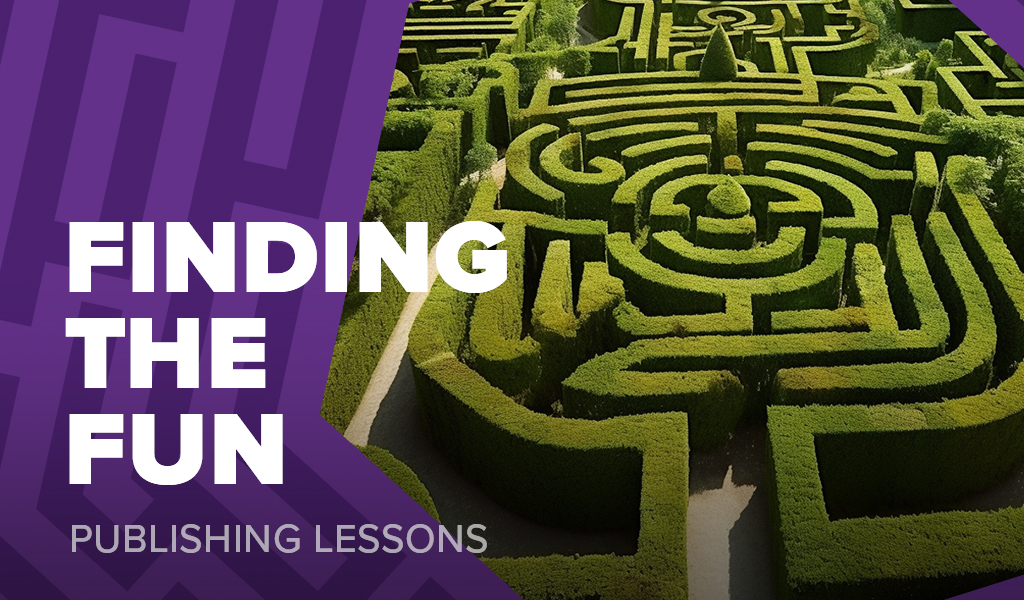Game design: Finding the fun

I often say that connecting a group of mechanisms to create a game is easy, but discovering a way to do it that results in a fun experience is the true challenge of game design.
Without fun, it can be difficult to determine whether we played a game or simply went through a series of tasks from the start point until the end. In some cases, it may be unfair to use the term “fun” as the primary differentiator of what is and is not considered a game. Perhaps we should consider achievement, emotional connection, a sense of bonding, or a combination of these factors? But I would suggest that these terms themselves are a part of what makes a game fun.
We can only find the fun if we know how to define it, and that, in itself, is a challenge. Fun isn’t consistent across games, which brings us to our starting point: understanding our audience.
Party games often create fun through humorous moments, encouraging interactions among the group, and providing a visually observable form of fun.
Large, complex, worker placement games challenge players to seek combinations, efficient strategies, and evolving plans to achieve the best results. In these scenarios, fun is often derived from the experience of making a clever move, achieving goals, or feeling like you’ve used your brain to solve a complex challenge.
There are many other forms of fun that can be experienced while playing a game, so we need to identify the audience for our specific game and consider how they would derive the most enjoyment from it.
The second stage of finding fun is to listen to your game. While you may have a direction in mind for the design or cool ideas that you think people will love, it’s often the unexpected aspects of your design that lead to the most enjoyable moments.
Observe people as they play your game and take note of when they become fully absorbed in the experience. They are no longer checking their phones, looking out the window, or engaging in general conversation; they are now focused on the table, observing what other players are doing, and eagerly preparing for their next move.
Identifying the trigger points for these moments can help you expand upon them and find ways to enable players to reach them more quickly.
A few years ago, the video game StarCraft 2, a real-time strategy game, decided to increase the number of workers each player started with. It was a controversial decision at the time, as players had been accustomed to the existing system for many years. However, the developers identified that much of the first few minutes of every game was the same, so they opted to cut out those initial turns and allow players to get to the fun faster.
When you play games, you may find yourself packing up the game and sharing moments from it with the other players at the table. You might tell them about a great move you made or laugh together at something that happened. The final part of finding the fun is to ask people at the end of a game which parts they enjoyed, what their strongest memory from the game is, and listen to the stories they want to tell.
If they struggle to come up with anything, perhaps you just have a series of mechanisms that can be played through until an end point, but if they have endless tales to share, then you have found your fun.
You should never be too attached to any part of your game. As you identify your audience, observe people becoming absorbed in its systems, and listen to their favourite moments, see if you can find ways to expand upon the systems that made that happen, and perhaps cut the systems that weren’t necessary.
Frank West
Frank West is a gamer and designer based in Bristol, UK. He published his first board game, The City of Kings, in 2018 and now works on other games and organising events in the local area. His goal? To design and publish games focusing on immersive themes, fun mechanics and beautiful components. If you have any questions or would just like a chat, feel free to get in touch at any time!


2 comments
Wonmin
21st July 2023 at 3:15 pm
Speaking of finding the fun, I’d love to know how the Meow tokens came about in RttR 😆
Frank West
21st July 2023 at 10:10 pm
I may write something about it in the future!